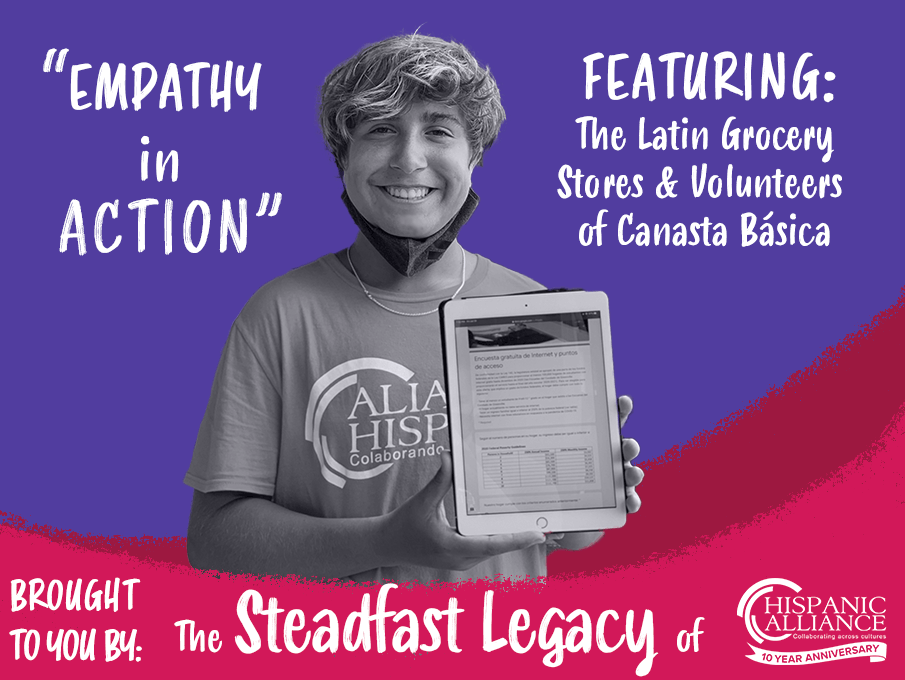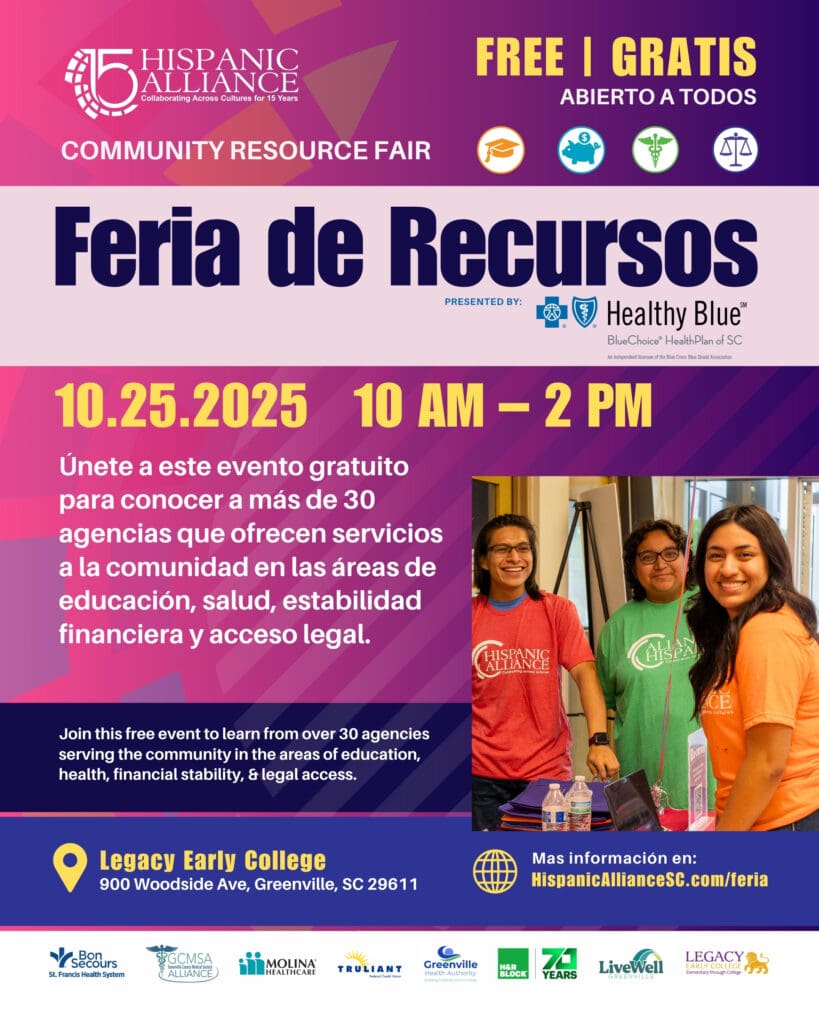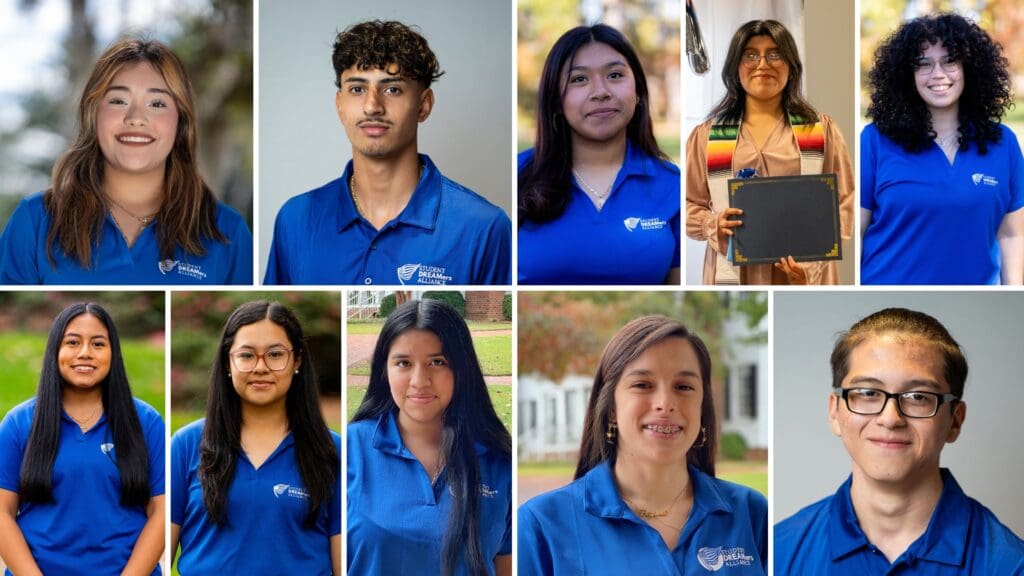The COVID-19 pandemic generated the greatest urgency for empathy and compassion in living memory. The scale of need is great, but empathy in action can be as “basic” as providing staple foods that speak to the heart. Lessons from the lives of Samuel, Jorge, and Maria revive our confidence in the ability to make a tangible improvement in human lives, especially when we can rely on the Steadfast Legacy of Hispanic Alliance.
“We come from Honduras, from a tenacious family that was not wealthy,” explains Samuel Castro, owner of Supermercado El Sol. Tenacious is exactly what a working class merchant family would have to be to overcome past decades of widespread poverty, political oppression and natural disaster in Honduras. Despite hardships, he says his parents were involved in their community, and instilled in him the ultimate value of helping others – the direct connection between personal struggle and instinctive generosity.
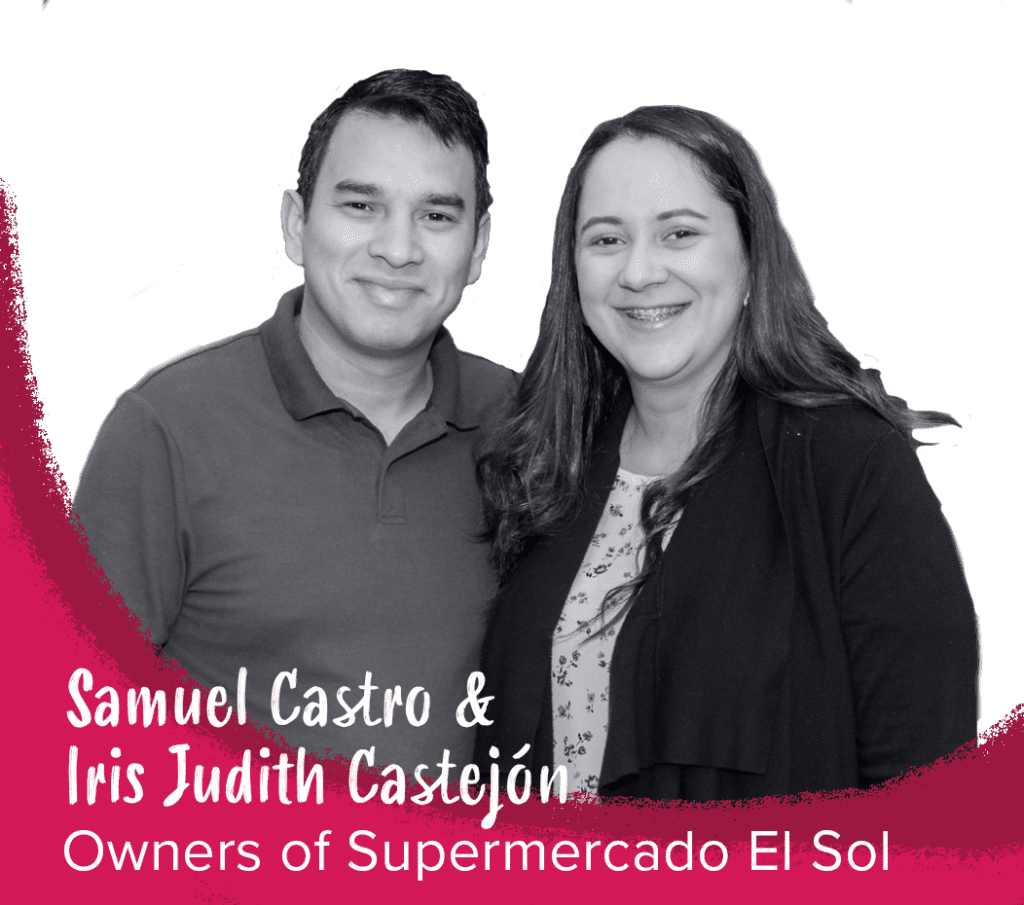
“What is the use of having enough to spare, if you cannot share with those who need it?” challenges Samuel.
The immigrant experience comes with inherent adversity: economic risk, isolation, and the stress of integration. Every immigrant story is unique, but Samuel, Jorge, and Maria, owners of three of the Latin supermarkets who have championed Canasta Básica, have something in common. They understand the immigrant struggle intimately, and that empathy has borne a generosity that is sustaining the vulnerable communities around them.
“I was afraid to open the supermarket,” admits Jorge Cellis, owner of Supermercado Los Arcos. In 2009, Jorge drove up from Atlanta alone with a small truck full of supplies. While unloading, he was shocked by a warm embrace from a deeply grateful stranger. Because of Jorge’s store, the man would no longer have to rely on his children to drive him a long distance to get food. “This filled me with the courage to continue,” Jorge recalls. He embraced his role in his neighborhood, and pioneered the first Canasta Básica event with Hispanic Alliance.
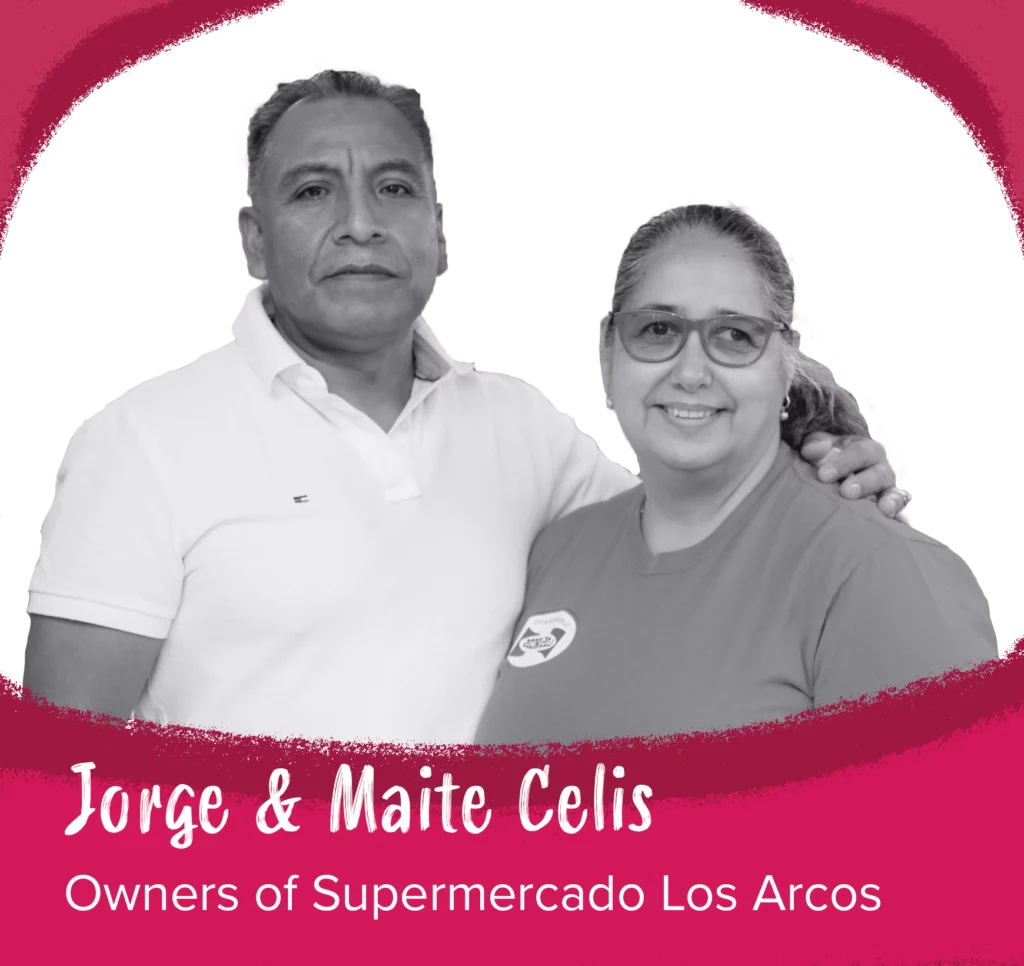
Canasta Básica is not a food-bank style distribution. It is a multifaceted model built upon a profound understanding of the economic, health, and cultural needs of our local Hispanic community. It asks the question, “If I were in a new country with a new language, in a culture that can be hostile to immigrants, and I could not feed my family, what solution would make me feel safe and loved?”
The answer for many Hispanic families is a “Canasta Básica,” a term in Latin cultures used for the basic ingredients underlying home cooked Hispanic meals. A struggling family receives a box full of comfort from their culture, provided by a trusted Latin grocer, rather than odd American pantry items (Peanut Butter is almost exclusively American). Even more, they are gifted with a voucher to that same trusted store to purchase additional fresh ingredients, maintaining normalcy and dignity in the eyes of their children.
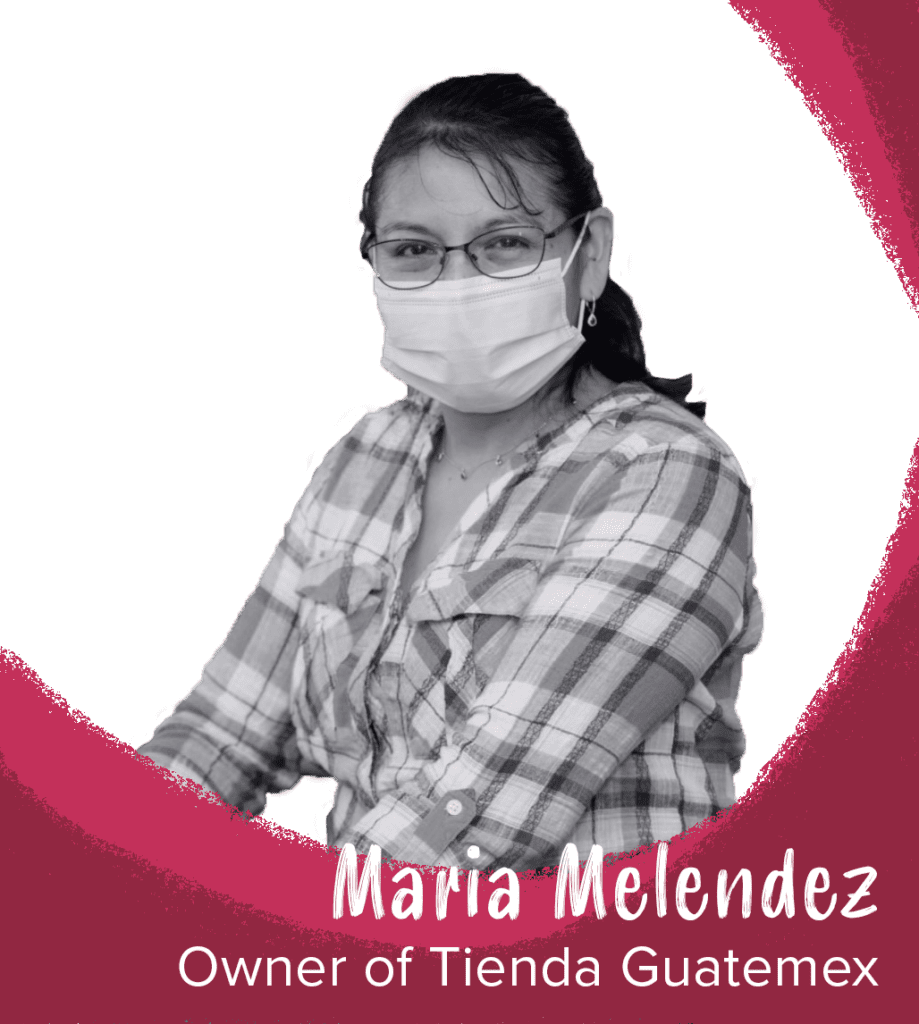
Guatemex owner Maria Melendez is practiced at cultivating a lifetime of adversity into resilience and compassion. “It has been a very tough life. Nothing has been handed to me,” she admits. Maria immigrated to the US from Guatemala via Mexico. “I came into this country with a partner that didn’t treat me well, and I was not able to separate from him until I reached the states.” She arrived with debt, and kept a brutal pace of work to survive.
After starting a new life with her husband Hector, they opened Guatemex in Greenville, a business that came to represent their new life together. They started a family but were always working, expanding one store into three, despite Hector’s worsening health. This year, a new illness combined with previous conditions took Hector’s life.
This tragedy has forced a turning point for Maria. “We Hispanics… we work ourselves to death, and it is not something we can afford to do!” she insists. This pivotal moment in her life led her to not only join Canasta Básica, but donate the entire cost of food for two entire events. Maria says she is driven to generosity by her own life experiences: “Maybe God is giving me all of this to make sure I am giving back.”
Deep empathy for others is often birthed from one’s own experience of suffering and adversity. When presented with the pain of others, we are hardwired to experience it as our own. However, to put empathy into action, it helps to have walked a mile in similar shoes. As in Maria’s case, our darkest times can transform into generosity that can light a path forward for others.
Jorge is in a central position to witness the suffering in his neighborhood. “Watch and help others. You have to look at what people need. I see that in this time of the coronavirus pandemic, many people are unemployed, they have problems paying utilities, they do not have enough food, especially when they have children.”
Rather than becoming overwhelmed by the immensity of human need, Latin business owners welcomed this innovative model from Hispanic Alliance to generate collective impact through volunteers, community partnerships, and supportive foundations.
“Being able to partner with Hispanic Alliance speeds up the process, instead of just reaching out to individual people to see if they need assistance,” explains Maria. “We are doing more than just giving food, we are redistributing the support.”
Canasta Básica pairs our grocers’ empathy for the shared immigrant experience, with their ability to provide the most culturally compassionate solution, to generate impact that reaches far beyond what anyone could accomplish as individuals. That is what makes the Canasta Básica model so fulfilling to support, and so effective for the health and spirits of the Hispanic community.
For Jorge, just knowing that his efforts were making a difference in the life of one person fueled him towards a successful business that now feeds hundreds of hungry families. “Imagine that every person in need arrives at the supermarket and receives a Canasta Básica,” he dreams. “I wish we could do it more often!”
“We are all a medium of support for each other,” reminds Maria. “All of our life experiences teach us, and it’s our decision to practice the things we have learned….It’s our decision to give back.”
Through Hispanic Alliance, we come together with different experiences and cultures, and it doesn’t matter if some have struggled greatly, and some less so. Working together empowers us to take the love we each feel for others, and act to relieve actual suffering, to change the outcome of actual lives. This is Empathy in Action.
